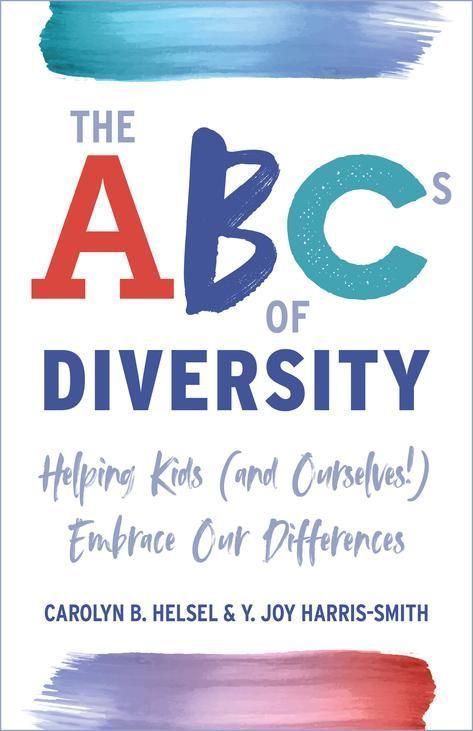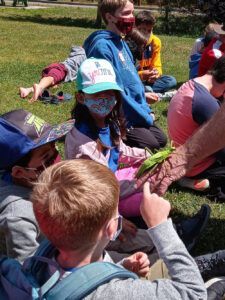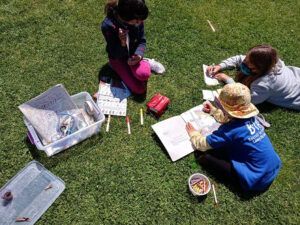Being Parents: Working with Our Fears and Values
How did your fears and values show up this year? We have learned a lot about ourselves and our families during the pandemic. If only it could be so easy to create a boundary and say that the pandemic is over. Transitions and change continue each day for ourselves and our children. God is there with us in the midst of acknowledging that particular circumstances are beyond our control.

I am reading The ABCs of Diversity: Helping Kids (and ourselves) Embrace Our Differences by Carolyn B. Helsel and Y. Joy Harris-Smith. It is helpful to see how fears and values are simply defined, so that we can look at our responses and move forward into healthy behavior patterns in tandem with growing faith. Helsel and Harris-Smith define automatic ABCs as: afraid, back away, and control. This relates to our physical body’s responses to signals from the animal brain which aims to protect ourselves and those around us. The authors also created intentional engagement ABCs: acknowledge, be present, and come closer in order to help people stay engaged in learning about themselves and others. “When we start to feel uncomfortable, we can acknowledge the source of our discomfort. Acknowledge that there is something new happening in you and around you, and that this opportunity can be a gift.”
Being present relates to staying curious, open, with a willingness to try as well as and deal with mistakes. “Coming closer means physically remaining in spaces in which you are uncomfortable. Coming closer means actually moving closer toward persons who are different from you, rather than staying away or avoiding them…It means you become a bridge without expectation.” In order to move into these intentional ABCs we need to have most of our needs met. During the pandemic, physical and mental health, economic instability, isolation, and loneliness touched our lives. We may still be in those places where we are trying to fulfill our basic needs. When we can fill our needs we can move into the ABCs of a more just society: Access, Build, and Cultivate. Accessing reliable information, resources, and interpersonal network connections bring us into reality and community. Building is acknowledging systems in which we and our children have grown up and reframing structures in which those who are marginalized can finally also benefit. “Cultivate refers to generating something new with what has been accessed and build upon…It also recognizes that we need new methods and processes as we move into the future.”

We acknowledge that our children go through fears and feel vulnerable like we do as adults. Their brains and bodies are developing, so their responses are different than ours. Our homework can be to look at brain research to understand age-appropriate questions and ways to respond to fears in children and youth, as well as learn how to be present and active listeners. Some tools that Helsel and Harris-Smith suggest to buoy up our own attitudes and wellbeing are to access the ROCKS of our foundation: Respect, Optimism, Community, Kindness, and Safety. We can address our own fears about safety in order to fulfill the need for stability, as well as tap into reliance on God and our faith groups. We can work together to help our neighborhoods, schools, and community centers be more accessible and safe. Reach out to Calvary friends and pastors when you need to check in with the ABCs. When we do this together, we can be healthier parents for our children.












